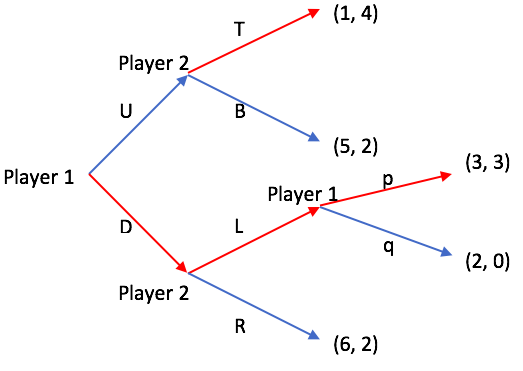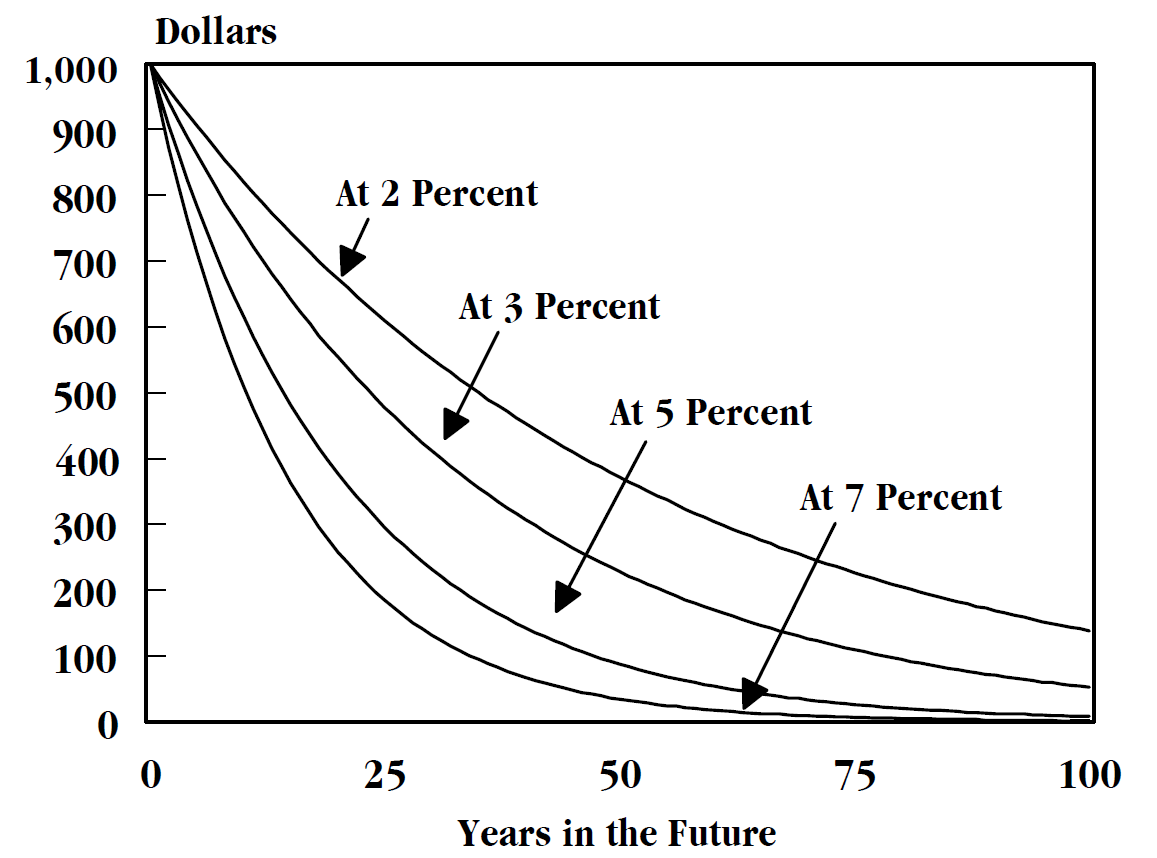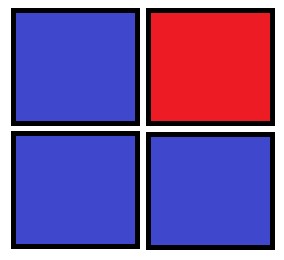|
Markov Perfect Equilibrium
A Markov perfect equilibrium is an equilibrium concept in game theory. It has been used in analyses of industrial organization, macroeconomics, and political economy. It is a refinement of the concept of subgame perfect equilibrium to extensive form games for which a pay-off relevant state space can be identified. The term appeared in publications starting about 1988 in the work of economists Jean Tirole and Eric Maskin. Definition In extensive form games, and specifically in stochastic games, a Markov perfect equilibrium is a set of mixed strategies for each of the players which satisfy the following criteria: * The strategies have the Markov property of memorylessness, meaning that each player's mixed strategy can be conditioned only on the ''state'' of the game. These strategies are called ''Markov reaction functions''. * The ''state'' can only encode payoff-relevant information. This rules out strategies that depend on non-substantive moves by the opponent. It excludes ... [...More Info...] [...Related Items...] OR: [Wikipedia] [Google] [Baidu] |
Subgame Perfect Equilibrium
In game theory, a subgame perfect equilibrium (or subgame perfect Nash equilibrium) is a refinement of a Nash equilibrium used in dynamic games. A strategy profile is a subgame perfect equilibrium if it represents a Nash equilibrium of every subgame of the original game. Informally, this means that at any point in the game, the players' behavior from that point onward should represent a Nash equilibrium of the continuation game (i.e. of the subgame), no matter what happened before. Every finite extensive game with perfect recall has a subgame perfect equilibrium. Perfect recall is a term introduced by Harold W. Kuhn in 1953 and ''"equivalent to the assertion that each player is allowed by the rules of the game to remember everything he knew at previous moves and all of his choices at those moves"''. A common method for determining subgame perfect equilibria in the case of a finite game is backward induction. Here one first considers the last actions of the game and determ ... [...More Info...] [...Related Items...] OR: [Wikipedia] [Google] [Baidu] |
Proper Subgame
In game theory, a subgame is any part (a subset) of a game that meets the following criteria (the following terms allude to a game described in extensive form): #It has a single initial node that is the only member of that node's information set (i.e. the initial node is in a singleton information set). #If a node is contained in the subgame then so are all of its successors. #If a node in a particular information set is in the subgame then all members of that information set belong to the subgame. It is a notion used in the solution concept of subgame perfect Nash equilibrium, a refinement of the Nash equilibrium that eliminates non-credible threats. The key feature of a subgame is that it, when seen in isolation, constitutes a game in its own right. When the initial node of a subgame is reached in a larger game, players can concentrate only on that subgame; they can ignore the history of the rest of the game (provided they know what subgame they are playing). This is ... [...More Info...] [...Related Items...] OR: [Wikipedia] [Google] [Baidu] |
Best Response
In game theory, the best response is the strategy (or strategies) which produces the most favorable outcome for a player, taking other players' strategies as given (; ). The concept of a best response is central to John Nash's best-known contribution, the Nash equilibrium, the point at which each player in a game has selected the best response (or one of the best responses) to the other players' strategies . Correspondence Reaction correspondences, also known as best response correspondences, are used in the proof of the existence of mixed strategy Nash equilibria (, Section 1.3.B; , Section 2.2). Reaction correspondences are not "reaction functions" since functions must only have one value per argument, and many reaction correspondences will be undefined, i.e., a vertical line, for some opponent strategy choice. One constructs a correspondence b(\cdot), for each player from the set of opponent strategy profiles into the set of the player's strategies. So, for any given set ... [...More Info...] [...Related Items...] OR: [Wikipedia] [Google] [Baidu] |
Sunk Investments
In economics and business decision-making, a sunk cost (also known as retrospective cost) is a cost that has already been incurred and cannot be recovered. Sunk costs are contrasted with ''prospective costs'', which are future costs that may be avoided if action is taken. In other words, a sunk cost is a sum paid in the past that is no longer relevant to decisions about the future. Even though economists argue that sunk costs are no longer relevant to future rational decision-making, people in everyday life often take previous expenditures in situations, such as repairing a car or house, into their future decisions regarding those properties. Bygones principle According to classical economics and standard microeconomic theory, only prospective (future) costs are relevant to a rational decision. At any moment in time, the best thing to do depends only on ''current'' alternatives. The only things that matter are the ''future'' consequences. Past mistakes are irrelevant. Any cost ... [...More Info...] [...Related Items...] OR: [Wikipedia] [Google] [Baidu] |
General Equilibrium
In economics, general equilibrium theory attempts to explain the behavior of supply, demand, and prices in a whole economy with several or many interacting markets, by seeking to prove that the interaction of demand and supply will result in an overall general equilibrium. General equilibrium theory contrasts to the theory of ''partial'' equilibrium, which analyzes a specific part of an economy while its other factors are held constant. In general equilibrium, constant influences are considered to be noneconomic, therefore, resulting beyond the natural scope of economic analysis. The noneconomic influences is possible to be non-constant when the economic variables change, and the prediction accuracy may depend on the independence of the economic factors. General equilibrium theory both studies economies using the model of equilibrium pricing and seeks to determine in which circumstances the assumptions of general equilibrium will hold. The theory dates to the 1870s, particularly ... [...More Info...] [...Related Items...] OR: [Wikipedia] [Google] [Baidu] |
Frequent-flyer Program
A frequent-flyer program (American English) or frequent-flyer programme (British English) is a loyalty program offered by an airline. Many airlines have frequent-flyer programs designed to encourage airline customers enrolled in the program to accumulate points (also called miles, kilometers, or segments) which may then be redeemed for air travel or other rewards. Points earned under FFPs may be based on the class of fare, distance flown on that airline or its partners, or the amount paid. There are other ways to earn points. For example, in recent years, more points have been earned by using co-branded credit and debit cards than by air travel. Another way to earn points is spending money at associated retail outlets, car hire companies, hotels, or other associated businesses. Points can be redeemed for air travel, other goods or services, or for increased benefits, such as travel class upgrades, airport lounge access, fast track access, or priority bookings. Frequent-fl ... [...More Info...] [...Related Items...] OR: [Wikipedia] [Google] [Baidu] |
Demand Function
In economics, a demand curve is a graph depicting the relationship between the price of a certain commodity (the ''y''-axis) and the quantity of that commodity that is demanded at that price (the ''x''-axis). Demand curves can be used either for the price-quantity relationship for an individual consumer (an individual demand curve), or for all consumers in a particular market (a market demand curve). It is generally assumed that demand curves slope down, as shown in the adjacent image. This is because of the law of demand: for most goods, the quantity demanded falls if the price rises. Certain unusual situations do not follow this law. These include Veblen goods, Giffen goods, and speculative bubbles where buyers are attracted to a commodity if its price rises. Demand curves are used to estimate behaviour in competitive markets and are often combined with supply curves to find the equilibrium price (the price at which sellers together are willing to sell the same amount as bu ... [...More Info...] [...Related Items...] OR: [Wikipedia] [Google] [Baidu] |
Discounted Value
Discounting is a financial mechanism in which a debtor obtains the right to delay payments to a creditor, for a defined period of time, in exchange for a charge or fee.See "Time Value", "Discount", "Discount Yield", "Compound Interest", "Efficient Market", "Market Value" and "Opportunity Cost" in Downes, J. and Goodman, J. E. ''Dictionary of Finance and Investment Terms'', Baron's Financial Guides, 2003. Essentially, the party that owes money in the present purchases the right to delay the payment until some future date.See "Discount", "Compound Interest", "Efficient Markets Hypothesis", "Efficient Resource Allocation", "Pareto-Optimality", "Price", "Price Mechanism" and "Efficient Market" in Black, John, ''Oxford Dictionary of Economics'', Oxford University Press, 2002. This transaction is based on the fact that most people prefer current interest to delayed interest because of mortality effects, impatience effects, and salience effects. The discount, or charge, is the difference ... [...More Info...] [...Related Items...] OR: [Wikipedia] [Google] [Baidu] |
Production Capacity
Productive capacity is the maximum possible output of an economy. According to the United Nations Conference on Trade and Development (UNCTAD), no agreed-upon definition of maximum output exists. UNCTAD itself proposes: "the productive ''resources'', entrepreneurial ''capabilities'' and production ''linkages'' which together determine the capacity of a country to produce goods and services." The term may also be applied to individual resources or assets; for instance the productive capacity of an area of farmland. Definition in more depth Productive capacity has a lot in common with a production possibility frontier (PPF) that is an answer to the question what the maximum production capacity of a certain economy is which means using as many economy’s resources to make the output as possible. In a standard PPF graph, two types of goods’ quantities are set. PPF expresses all the possibilities of a combination of these goods that can be maximally produced by a certain economy due ... [...More Info...] [...Related Items...] OR: [Wikipedia] [Google] [Baidu] |
Fixed Costs
In accounting and economics, 'fixed costs', also known as indirect costs or overhead costs, are business expenses that are not dependent on the level of goods or services produced by the business. They tend to be recurring, such as interest or rents being paid per month. These costs also tend to be capital costs. This is in contrast to variable costs, which are volume-related (and are paid per quantity produced) and unknown at the beginning of the accounting year. Fixed costs have an effect on the nature of certain variable costs. For example, a retailer must pay rent and utility bills irrespective of sales. As another example, for a bakery the monthly rent and phone line are fixed costs, irrespective of how much bread is produced and sold; on the other hand, the wages are variable costs, as more workers would need to be hired for the production to increase. For any factory, the fix cost should be all the money paid on capitals and land. Such fixed costs as buying machines and l ... [...More Info...] [...Related Items...] OR: [Wikipedia] [Google] [Baidu] |
Focal Point (game Theory)
In game theory, a focal point (or Schelling point) is a solution that people tend to choose by default in the absence of communication. The concept was introduced by the American economist Thomas Schelling in his book ''The Strategy of Conflict'' (1960). Schelling states that "(p)eople ''can'' often concert their intentions or expectations with others if each knows that the other is trying to do the same" in a cooperative situation (at page 57), so their action would converge on a focal point which has some kind of prominence compared with the environment. However, the conspicuousness of the focal point depends on time, place and people themselves. It may not be a definite solution. Existence The existence of the focal point is first demonstrated by Schelling with a series of questions. The most famous one is the New York City question: if you are to meet a stranger in New York City, but you cannot communicate with the person, then when and where will you choose to meet? This is ... [...More Info...] [...Related Items...] OR: [Wikipedia] [Google] [Baidu] |


_last_flight.jpg)


